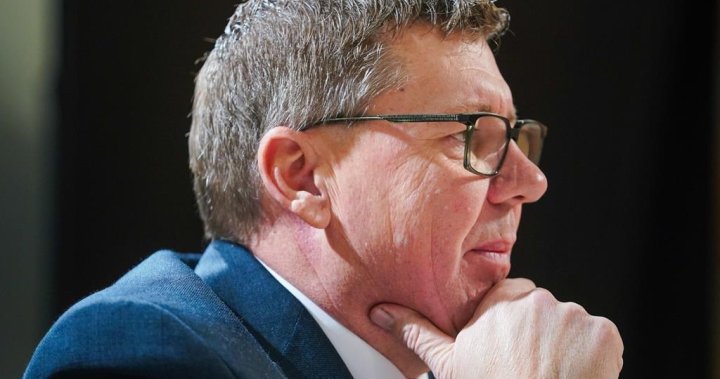The Impact of Trudeau’s Resignation on Canadian Politics and the Capital Gains Tax
Justin Trudeau’s unexpected resignation as leader of the Liberal Party of Canada has sent ripples throughout the political landscape, leaving many questions unanswered about the future direction of the country. While Trudeau will remain as prime minister until a new leader is chosen, his departure has already sparked speculation and concern about several key policy issues, most notably the proposed changes to the capital gains tax.
The Liberal government’s proposed increase in the inclusion rate for capital gains taxation has been a contentious issue, particularly among farmers and small business owners. The proposed change would increase the portion of capital gains subject to taxation from 50% to 66.7% on amounts exceeding $250,000. This means that a larger share of profits realized from the sale of assets like stocks, real estate, or farmland would be taxed at the individual’s income tax rate. Critics argue that this change will disproportionately affect those who have built up their assets over time, including farmers who often rely on the sale of land for retirement income. Supporters of the change contend it addresses wealth inequality and ensures that those who benefit most from capital appreciation contribute their fair share to public finances.
The timing of Trudeau’s resignation has added further complexity to the situation. With the bill yet to pass Parliament, its future now hangs in the balance. Although the Canada Revenue Agency (CRA) is preparing to issue tax forms reflecting the proposed changes, there is a possibility that the new Liberal leader may choose to abandon or modify the proposal. This uncertainty creates a challenging environment for financial planning and investment decisions, as individuals and businesses must grapple with the potential impact of a tax policy that may never come into effect. The CRA maintains that it is following standard parliamentary procedure by preparing for the implementation of the proposed changes, as tax measures are typically considered effective from the date they are announced in the House of Commons. However, the agency has also stated that it will halt the implementation if Parliament reconvenes and signals a change in direction.
Saskatchewan, a province with a strong agricultural sector, has been particularly vocal in its opposition to the proposed capital gains tax increase. Farmers in the province fear that the higher inclusion rate will significantly reduce their retirement savings and make it more difficult to transfer farms to the next generation. Ted Cawkwell, an agricultural specialist, highlights the concern that many farmers live modestly throughout their working lives and rely on the sale of their farms to secure their financial future. The increased tax burden could erode this vital source of income, leaving farmers with less than they had anticipated for retirement. While Trudeau’s resignation has been met with cautious optimism in Saskatchewan, there is a recognition that the future of the capital gains tax remains uncertain. The hope is that the new Liberal leader will be more receptive to the concerns of farmers and reconsider the proposed changes.
The political fallout from Trudeau’s resignation extends beyond the capital gains tax debate. Saskatchewan Premier Scott Moe has called for an immediate federal election, arguing that suspending Parliament while the Liberal Party chooses a new leader disenfranchises Canadians. Moe emphasizes the need for a clear mandate from the electorate and criticizes the delay in holding an election as a denial of democratic choice. His call for an election reflects the broader political tensions that have emerged in recent years, with provincial leaders often clashing with the federal government on a range of issues. Moe’s statement also highlights Saskatchewan’s focus on economic priorities such as affordability, market access, investment attraction, and border security. These issues are likely to feature prominently in the upcoming federal election campaign, whenever it may be held.
The unexpected nature of Trudeau’s resignation and the uncertainty surrounding the future of the Liberal leadership have created a period of political flux in Canada. The fate of the capital gains tax proposal is just one example of the policy questions that remain unanswered. The selection of a new Liberal leader will be a pivotal moment, shaping the party’s platform and influencing the direction of the country. The next leader will inherit a complex set of challenges, including navigating the economic recovery, addressing social inequalities, and managing the ongoing impacts of climate change. The political landscape is likely to remain dynamic in the coming months as the Liberal Party embarks on the process of choosing its new leader and preparing for the next federal election.
Trudeau’s departure creates a vacuum in Canadian politics, leaving room for new voices and potentially new policy directions. The next leader of the Liberal Party will face the task of uniting the party and presenting a compelling vision for the future of the country. The political landscape is likely to be highly competitive, with the opposition parties seeking to capitalize on the uncertainty and the changing dynamics within the Liberal Party. The upcoming months will be crucial in determining the future direction of Canadian politics and the policies that will shape the country’s future.

